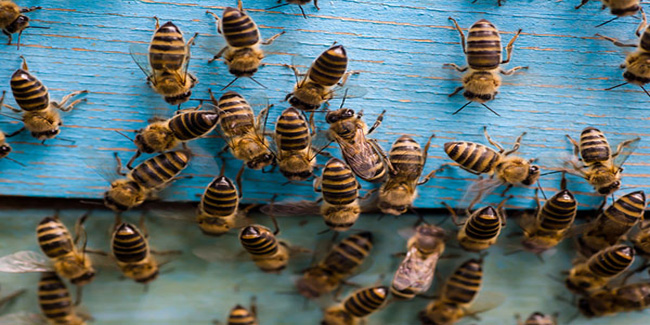
While we benefit from honey bees by their pollination and honey they collect, they can be serious pests at times. Bees that establish a hive in a home can be a problem because of increased hazard of humans being stung. Trash bins and recycling centers may also encourage robbing honey bees.Honey bees typically search for flowers containing nectar and pollen for food. However, they are very opportunistic, and will seek syrups, sugar, fruit juices, and other sweet substances within easy access when flowers are not available.
During the summer and fall when flowers are less numerous, robber honey bees and wasps can be very serious pests in places such as around trash containers and aluminum can recycling centers. Proper sanitation is the key to control of these problems. Areas in which syrup or other sugars are frequently spilled or accumulate should be cleaned regularly to discourage honey bees. The use of plastic can liners and lids for trash cans will discourage honey bees.
House flies are covered with small hairs that serve as taste organs. Their compound eyes are extremely complex: thousands of individual lenses allow them a wide field of vision.House flies are major carriers of disease. They are known to transfer over 100 pathogens resulting in ailments, including typhoid, tuberculosis, cholera and dysentery. House flies collect these pathogens on their legs and mouths when feeding on feces, trash and other decaying material